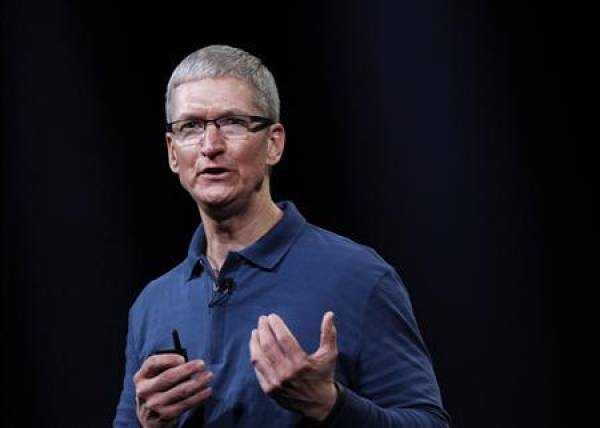David Einhorn Wants Apple Shareholders To Vote On Voting On Issuing Preferred Stock
Post on: 16 Март, 2015 No Comment

Share
/ Feb 7, 2013 at 10:26 AM
David Einhorn is suing Apple to make them give shareholders a separate vote over whether shareholders should have a vote over whether Apple can issue preferred stock. I guess that requires some unpacking. Lets start at the end, with the preferred stock. Here is Einhorns plan :
For example, Apple could initially distribute to existing shareholders $50 billion of perpetual preferred stock, with a 4% annual cash dividend paid quarterly at preferential tax rates. Assuming Apple retains its price to earnings multiple of 10x and the preferred stock yields 4%, our calculations show that every $50 billion of perpetual preferred stock that Apple distributes would unlock about $30 billion, or $32 per share in value. Greenlight believes that Apple has the capacity to ultimately distribute several hundred billion dollars of preferred, which would unlock hundreds of dollars of value per share. Further, Greenlight believes additional value may be realized when Apple’s price to earnings multiple expands, as the market appreciates a more shareholder friendly capital allocation policy.
What do you think? I vote yes. (I mean, I think its a good idea. The voting is more complicated.) My math is here and ties closely to Einhorns:
The math is super straightforward though it can and should boggle you conceptually if you think about it. If youre a company and you dividend to your shareholders $X worth of stuff, then youve reduced the value of your company by $X, and so shareholders should be neutral. The main assumption here is that levering up by issuing this preferred would not lower Apples P/E multiple from an already pretty low 10.3x; 1 Einhorns intuition that the multiple might expand due to a more shareholder-friendly payout policy is, yknow, intuitive, but then, value really shouldnt be sensitive to just slicing up bits of paper. If you could just create $30bn of value by issuing preferred stock, everyone would do it. The response only Apple can create $30bn of value by issuing preferred stock is surely right but theoretically troubling. [Update: Here you can read Einhorn discussing these questions with Henry Blodget. 1.5 ]
But thats not the issue here. The issue here is that Apples board is asking shareholders to vote to eliminate the boards right to issue blank check preferred stock:
The Company’s existing Articles permit the Board to issue shares of preferred stock having voting, conversion and other rights to be determined by the Board in its sole discretion. This is referred to as “blank check” preferred stock because it does not require shareholder approval. The Company has not issued shares of preferred stock since 1997, when it issued 150,000 shares of Series A Non-Voting Convertible Preferred Stock. Those shares were redeemed in full shortly thereafter. The Board does not intend to issue preferred stock in the future and believes that it is appropriate to eliminate this provision from the Articles. If the proposed amendment of the Articles is approved by the Company’s shareholders, any future issuances of preferred stock would require shareholder approval.
Blank-check preferred stock is normally something that corporate-governance advocates hate, 2 which is presumably why Apple is proposing to get rid of it. Its combined, on the proxy, with allowing majority voting for directors, another governance hot button, as well as some administrative trivia. 3 Having blank-check preferred allows directors to adopt a poison pill when threatened with a takeover, which is a governance no-no; it also allows for various other flavors of takeovery shenanigans like, for instance, AIGs takeover by the government without shareholder approval .
I posit that this is not relevant to Apple. Still, good governance is good governance and if youve got nothing else going on you might as well clean up sections of your charter that you never use. Even if a certain activist shareholder has been lobbying you since May to start using them again.
There are many layers of triviality between whats happening here lawsuit to unbundle proxy proposals and what Einhorn wants shareholder value enhancement through paper-shuffling. Viz.:
- Apple is asking shareholders to vote on whether to adopt a bunch of charter reforms, including eliminating blank check preferred, in a single vote. Einhorn supports some of these (majority voting), but not the blank-check amendment, and Apple refuses to hold separate votes. So hes suing to force them to. Will he win? Im sure theres legal authority on the circumstances that require you to separate proxy proposals from each other but some things are just too boring to think about. [Update: DealBook has the complaint if youre interested.]
- Win or lose, theres still a vote. The other proposals bundled with the blank-check amendment are, as Einhorn argues in his letter to shareholders. not really of critical urgency, so if you think that the blank-check amendment is a bad idea then you can vote no on the whole package with a clean conscience.
- Even if the shareholders vote to eliminate blank-check preferred, the board can still issue Einhorns proposed preferred stock. It just has to get a shareholder vote first.
- But of course if the board doesnt want to issue the preferred, giving it more or less power to do so with or without a vote is sort of irrelevant. Einhorn can sue to unbundle some proposals, but he cant sue to force them to issue the preferred. 4
- So the lawsuit, and the vote, and everything else, are in some sense meaningless: no result on any of them is likely to change the substantive outcome of will Apple issue preferred stock, or not?

That, of course, is how corporate-governance conflicts normally go: the substance is hashed out in the court of public (shareholder) opinion and moral pressure on boards, while tangentially related trivia are the subject of lawsuits and shareholder votes. Its kind of a silly system, but its our system and we love it.
And in some ways Einhorn has to be happy that Apple is proposing this amendment. Without it, his dividend plan would just be another idea from a kibbitzing shareholder, which Apple in its majesty would be free to ignore. But the amendment gives Einhorn a piece of trivia to hang a lawsuit on, and the lawsuit might just get him some attention for the substance of his plan.
1. A lesser assumption is that Apple could issue a pref at 4%, i.e. that $50bn face amount of 4% preferred would actually give shareholders $50bn of value. JPMorgan did $900mm of pref this week at 5.45%. JPMorgan is a bank. Apple is Apple. 4% seems okay.
1.5. Here you can ponder: proxy soliciting materials that should be filed with the SEC? Meh.
- Vote AGAINST proposals that would authorize the creation of new classes of preferred stock with unspecified voting, conversion, dividend distribution, and other rights (blank check preferred stock).
- Vote AGAINST proposals to increase the number of blank check preferred stock authorized for issuance when no shares have been issued or reserved for a specific purpose.
- Vote FOR proposals to create declawed blank check preferred stock (stock that cannot be used as a takeover defense).
- Vote FOR requests to require shareholder approval for blank check authorizations.
3. This one is a little wonderful:
The proposed amendment of the Articles would also amend Article III of the Articles to establish a par value for the common stock of $0.00001 per share.
Currently, the Company’s common stock has no par value. The Company anticipates that establishing a par value of $0.00001 per share will reduce corporate expenses and thus benefit the shareholders. Under the laws of the State of California, which is the state in which the Company is incorporated, a corporation may have par or no par value stock. However, some other states impose qualification or licensing fees on foreign corporations to transact business in such states based upon the authorized capital stock of a corporation. In certain states, the rates at which qualification or licensing fees are assessed differ, depending upon whether the shares of the corporation are with or without par value, with nominal par value shares being assessed at a lower rate than no par value shares, in some cases. The Company believes that adopting a nominal par value for its shares will, in some cases, result in the Company being assessed qualification or licensing fees on a similar basis as other companies that also have a nominal par value for their shares.
So: you should totally do that; if it saves you some licensing fees to say common stock, par value $0.00001 per share instead of common stock, no par value, then why spend the extra licensing fees? But its also pretty much the most trivial thing you can spend your time on: how much can those licensing fees possibly be? Some have worried that the post-Jobs Apple would retreat to making minor tweaks rather than major innovations; I feel like adjusting par value of your stock to save on corporate-franchise taxes is an elegant symbol of that.














